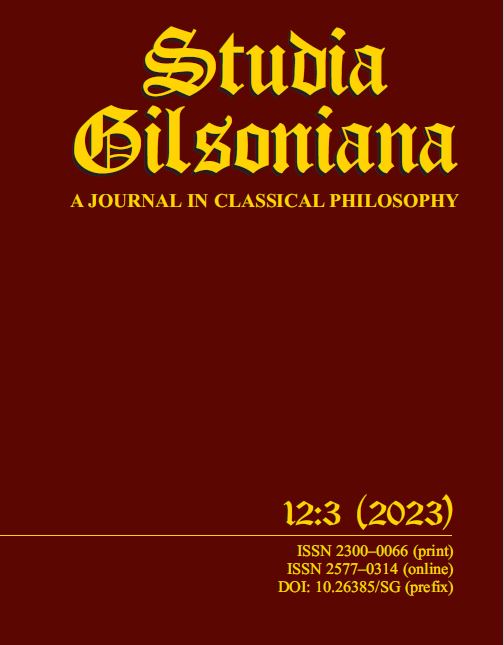Freedom and Conscience in the Thought of Karol Wojtyła
Freedom and Conscience in the Thought of Karol Wojtyła
Author(s): Richard A. SpinelloSubject(s): Philosophy, History of Philosophy, Social Philosophy
Published by: International Étienne Gilson Society
Keywords: anthropology; conscience; consciousness; efficacy; ethics; freedom; good; personalism; self-determination; truth; Wojtyła
Summary/Abstract: This article considered the correlation between freedom, conscience, and self-fulfillment. The analysis began with the properties of human action and how action differs from happening. The primary theme was an exposition of freedom which lies at the root of “man-acts.” The fundamental meaning of freedom is self-dependence, but there is a deeper meaning. Freedom is independence from the objects of choice that is achieved by rising above oneself (vertical transcendence) to choose the bonum honestum, the true good that fulfills the self. Freedom, therefore, ultimately depends on truth and especially on moral truth that is apprehended by conscience. Conscience transforms that normative truth into concrete duties that objectivize the bona honesta. Only when someone follows a moral duty understood and accepted as such can he reach the summit of freedom and authentic self-determination.
Journal: Studia Gilsoniana
- Issue Year: 12/2023
- Issue No: 3
- Page Range: 397-421
- Page Count: 25
- Language: English

